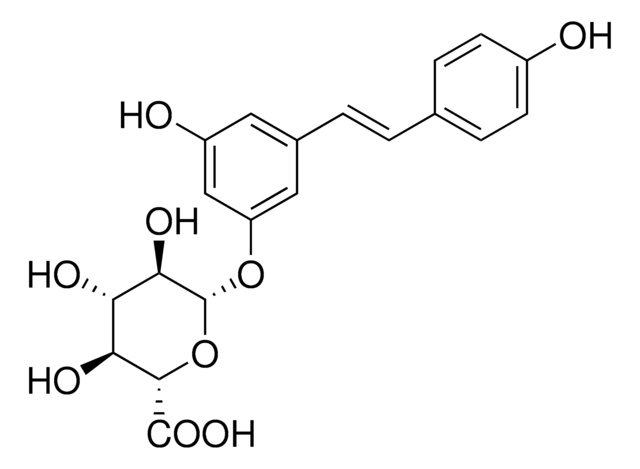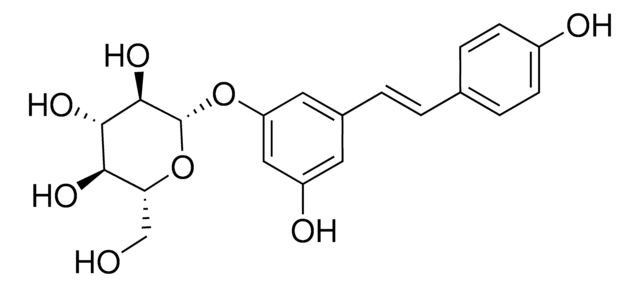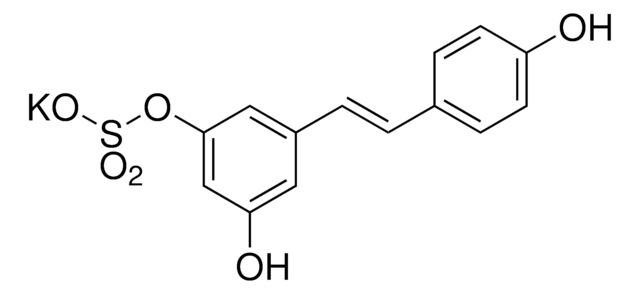SMB00956
trans-Resveratrol 4′-O-β-D-glucuronide
≥95% (HPLC)
Sinónimos:
Resveratrol 4′-O-glucuronide, Resveratrol-4′-O-D-Glucuronide, trans-Resveratrol 4′-O-glucuronide, trans-Resveratrol 4′-glucuronide
About This Item
Productos recomendados
Quality Level
assay
≥95% (HPLC)
form
solid
color
white to beige
storage temp.
2-8°C
InChI
1S/C20H20O9/c21-12-7-11(8-13(22)9-12)2-1-10-3-5-14(6-4-10)28-20-17(25)15(23)16(24)18(29-20)19(26)27/h1-9,15-18,20-25H,(H,26,27)
InChI key
CDEBVTGYVFHDMA-UHFFFAOYSA-N
General description
Application
Biochem/physiol Actions
Other Notes
Storage Class
11 - Combustible Solids
wgk_germany
WGK 3
Elija entre una de las versiones más recientes:
Certificados de análisis (COA)
¿No ve la versión correcta?
Si necesita una versión concreta, puede buscar un certificado específico por el número de lote.
¿Ya tiene este producto?
Encuentre la documentación para los productos que ha comprado recientemente en la Biblioteca de documentos.
Nuestro equipo de científicos tiene experiencia en todas las áreas de investigación: Ciencias de la vida, Ciencia de los materiales, Síntesis química, Cromatografía, Analítica y muchas otras.
Póngase en contacto con el Servicio técnico








